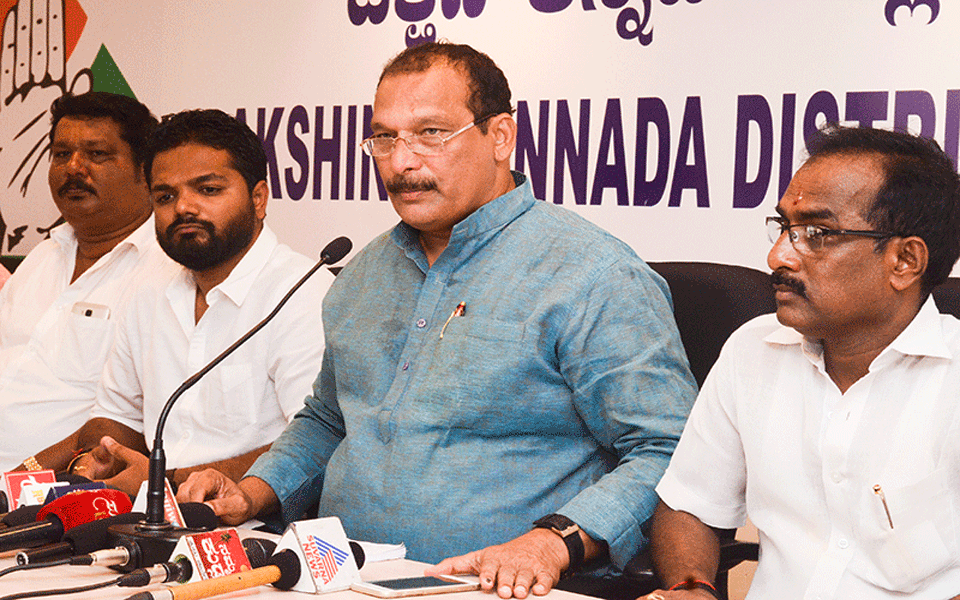Mangaluru: Vidhana Parishat Chief Whip Ivan D'Souza today criticised the BJP’s bandh-call terming it as a blackmail tactic.
Addressing reporter at DK district Congress committee office here, D’Souza said the BJP had called for a bandh, but the farmers did not come to the streets. They have decided to give time to Chief Minister Kumaraswamy. Hence the BJP’s bundh call has failed completely.
“Chief Minister Kumaraswamy had stated that he would waive loans if he forms the government on his own. Now the coalition government exists. But he never denied the loan waiver. This decision has to be taken up after discussing with other leaders and reviewing the state's economic situation. People and farmers have understood this. But the BJP did nothing when they were in power. Now, they are trying to misguide people. Earlier, BJP leaders Eshwarappa and Jagadish Shettar had said that the central government would waive the loans borrowed from co-operative banks. But it was not possible from them,” Ivan D'Souza said.
He further said “The BJP is saying that the alliance of the coalition government is unholy. The BJP was given a chance to form the government in spite of getting 104 seats. But Yeddyurappa ran away without facing trust vote. The BJP may have got more seats than the Congress. But the Congress is ahead of the BJP in the state by 1.8 percent vote share.”
“We have discussed the reasons behind the Congress’ defeat in the district. This is due to the BJP's promotion of communal heartedness in the district. Under the leadership of the coalition government, we will correct those mistakes in the future,” he added.
Let the Truth be known. If you read VB and like VB, please be a VB Supporter and Help us deliver the Truth to one and all.
Dubai: Smoke was seen rising from an area near the United States Consulate in Dubai, according to witness accounts cited by Reuters.
There was no immediate official confirmation on the extent of damage or whether there were any casualties in the incident.
Earlier, the US embassy in Riyadh, Saudi Arabia’s capital, was also attacked. Authorities reported damage to the premises, but no casualties were recorded.
The developments come amid heightened tensions in the region, with Iran continuing to target US interests in the Middle East following deadly attacks launched on Saturday by Israel and the United States.
Near US embassy in Dubai pic.twitter.com/z5VTZNVxNO
— Sahil Shah (@thesahilsshah) March 3, 2026





